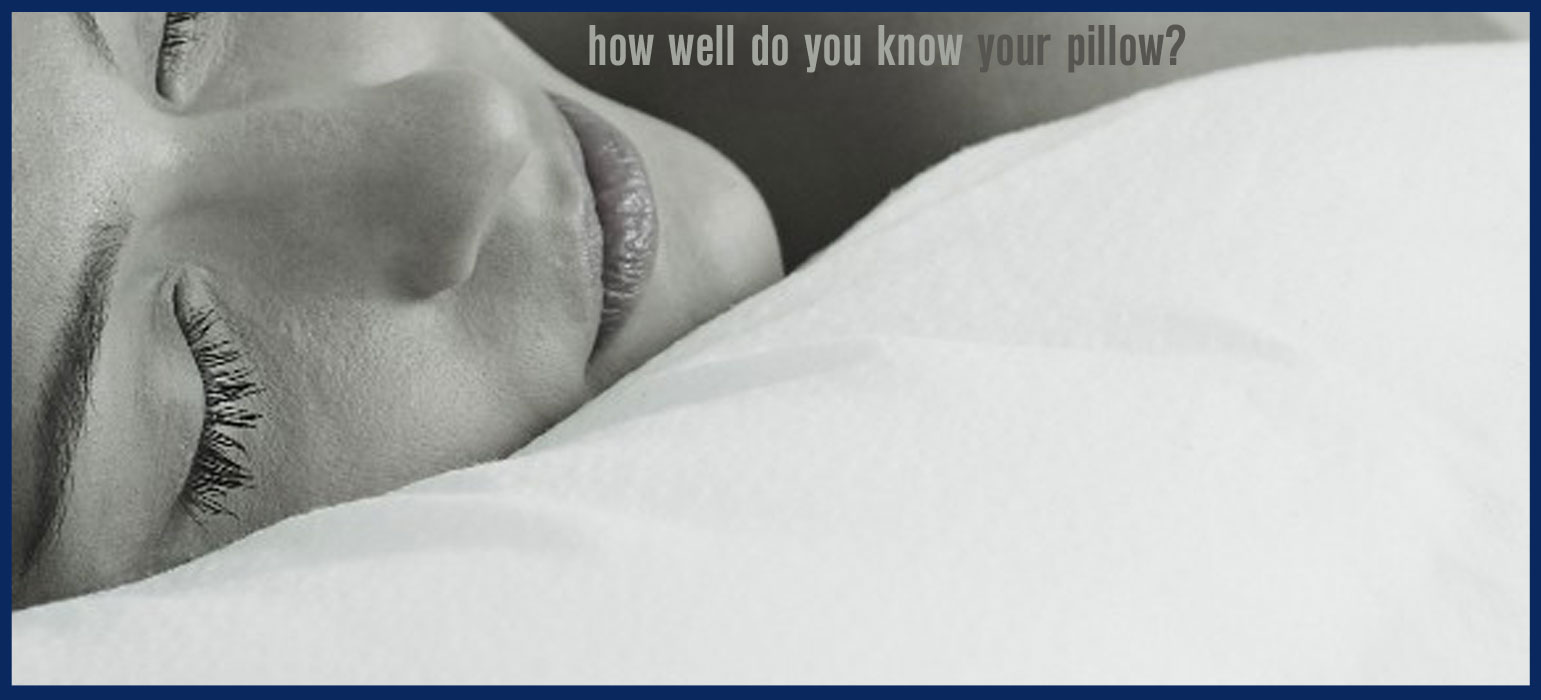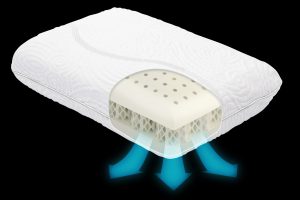
How Well Do You Know Your Pillow?
Those of us who are super-clean in every other aspect of our lives just don't consider what might be going on in our pillows. We take them for granted don't we! But after a couple of years - that's roughly 2000 hours - spent in the proximity of your sleeping head it's fair to assume it might not be the cleanest thing in the world.
Read on to discover more about the secret life of your pillow...
Secret # 1: The earliest pillows
The earliest recorded pillows go back to prehistoric times, but were rather different to what we know now. Prehistoric pillows were usually made of stone, a piece of wood or a bundle of grass. Remember that, the next time you lay your head on your soft, fluffy pillow.
But also think... Does the softness actually equate to comfort and support? If your neck or shoulders are aching, your pillow is probably not doing its proper job of supporting your head and neck.
Secret # 2: Pillow Menus!?
Some hotels are even starting to offer guests a menu of pillows, so that instead of being stuck with one single type of pillow in your room, you can choose your ideal pillow from a variety of different options. A really nice idea! One Singapore hotel offering a whopping 16 different choices! I don't think stone, wood and hay is on the menu however.
Secret # 3: Life expectancy of your pillow
Your pillow is always supportive, always there, always comforting you when you need it. But how long should you keep it for? Can you remember how long you've had it?
The average life expectancy of a pillow has traditionally been cited as being from 8 to 10 years for feather, 5 to 10 years for down, and 1 to 2 years for polyester. But recently many experts have been revising that theory, suggesting that the pillow should be changed every 2 years. A company in Australia even had the novel idea of putting a "Best Before" date on theirs!
Robert Oexman of the Sleep to Live Institute recommends every 6 months, saying "People talk about how nasty a mattress gets, but pillows are more frequently forgotten. Unlike mattresses, the concern is less about the pillow breaking down and no longer providing ample support. It's just not something you want to be around longer than six months." This is due to the lack of hygiene in older pillows.
The lifetime of a pillow is generally informed by quality, but if you are someone who's troubled by allergies, neck pain, back pain or any other sleep-related problems, it should be replaced far more regularly.
Secret # 4: Your pillow as a harbour for not very nice things
The majority of pillows don't just contain the materials they are made of. After time many pillows will have gathered a large collection of dirt, oil and dead skin cells. As well as being not-so-hygienic, your pillow will also be a rich haven for dust mites.
1 in 5 people suffer from allergies, and around two thirds of these will have allergies that are actively triggered by dust mites. You can help this by regularly changing your pillow and also looking for a pillow which is easily cleaned. It's a lesser-known fact, but the dirt, oil and old skin cells can also unfortunately trigger acne.
If you think about it, an old stone pillow thousands of years ago might actually have been better for you than your soft, fluffy feather one that's been in the family for years.
How to choose a new pillow

If you're in any way concerned about allergies it's widely recognised that a synthetic pillow is the best solution for you. This is one that's not filled with feather or down but with man-made fibres.
Typically, in the past, the quality of man-made pillows has not been so good, and they have felt somehow less luxurious, but here at Dormeo we have just developed a brand new, clean, hygienic pillow that's suitable for all types of sleepers.
The Octaspring® airflow system in our brand new Octaspring True Evolution Pillow makes it a deeply unfriendly place for dust mites and bacteria. It also has a luxurious, removable cover that can be machine-washed at home at 30ºC; while the 35 individual memory foam springs inside allow constant airflow, as well as acting as your own little army of support pods. It only came out in October and (whisper it) we're rather proud of it! Find out more over on the Dormeo website.







Leave a Reply